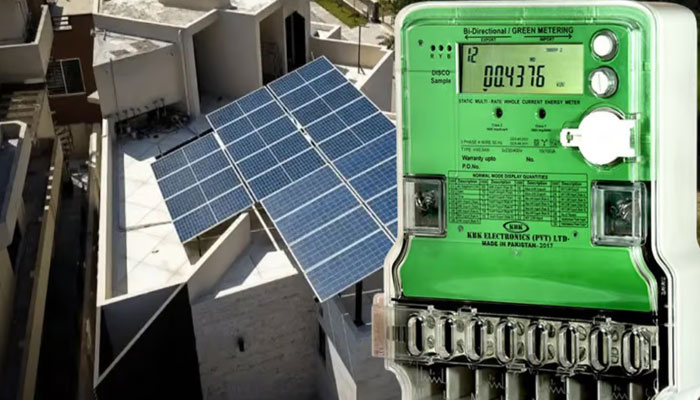Federal Govt Ready to End Solar Net Metering in Pakistan: Here’s Why!
Existing net metering users will be allowed to retain their current rates and will not be affected by the shift.
ISLAMABAD: The federal government is preparing to phase out the current solar net metering system, with a new draft policy nearly finalized that proposes a major overhaul of how solar energy is managed in Pakistan. The Power Division is pushing to replace net metering with gross metering—a move that could significantly impact solar energy users across the country.
Under the proposed system, solar panel owners would no longer offset their own electricity consumption with the power they generate. Instead, all electricity produced would be sold directly to the national grid at a fixed rate set by the government.
Buyback Rate Slashed by Nearly 60%
One of the most striking changes in the draft policy is the drastic reduction in the buyback rate for solar electricity. The government is proposing a rate of Rs. 11.33 per unit—down from the current net metering rate of Rs. 27 per unit. The new rate represents a nearly 60% cut and will be used as a baseline moving forward. Future rates would be pegged to one-third of the regular electricity tariff.
However, existing net metering users will be allowed to retain their current rates and will not be affected by the shift.
Financial Concerns Behind the Policy Shift
Officials from the Power Division argue that the existing net metering system has placed a significant financial burden on non-solar consumers. According to government data, the system has resulted in a cumulative cost of Rs. 159 billion—Rs. 103 billion of which stems from the premium paid for solar electricity.
Read more: Currency Exchange Rates in Pakistan Today – US Dollar, Euro, Pound, Dirham to PKR – 17 July
The government maintains that gross metering would distribute energy costs more equitably across the population and help stabilize the power sector’s finances.
Ambitious Solar Expansion Plan
Despite the rate cuts, the new policy aims to add up to 8,500 megawatts of solar power to the national grid in the coming years. Officials say the plan is designed to promote large-scale solar adoption while protecting the broader consumer base from rising electricity prices.
The draft policy is expected to be submitted to the federal cabinet for final approval after it clears the National Electric Power Regulatory Authority (NEPRA).





Comments are closed, but trackbacks and pingbacks are open.